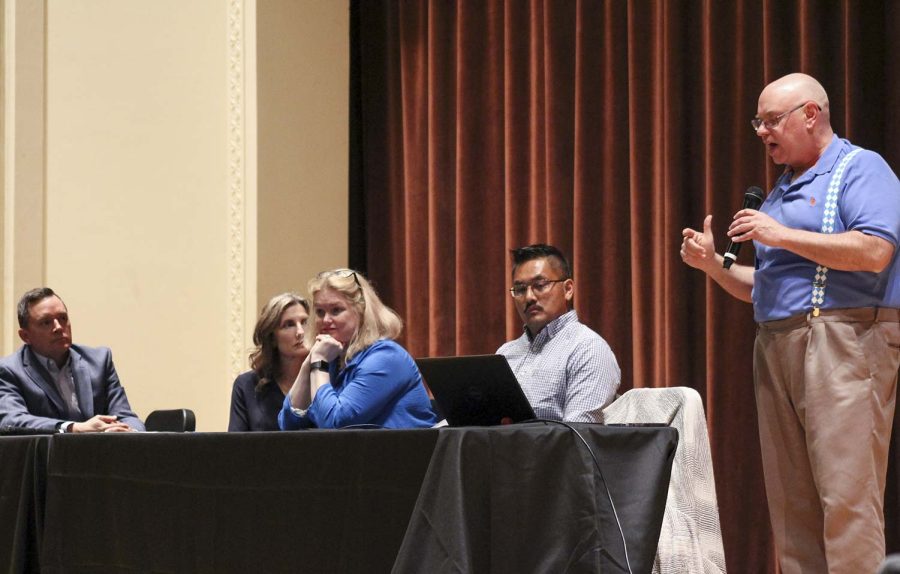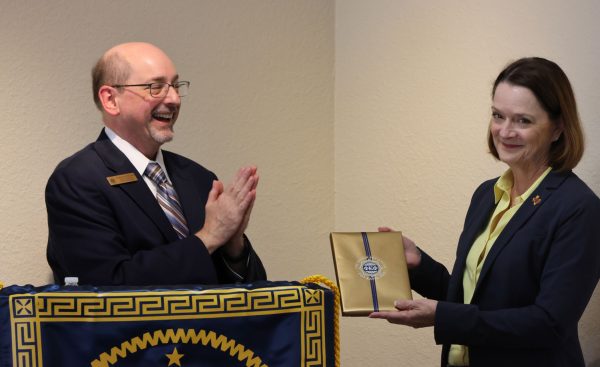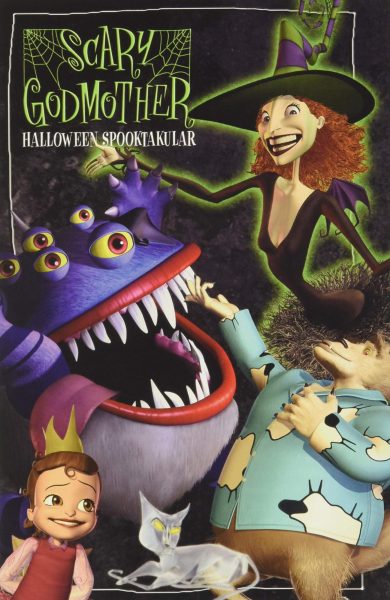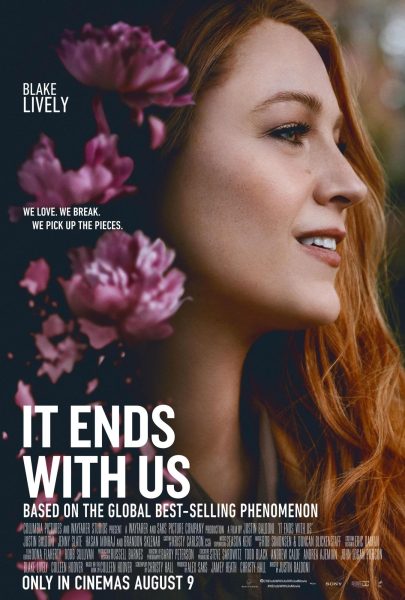MSU Round Table offers multiple perspectives on crisis in Ukraine
Director of Global Education Michael Mills, assistant professor Rebekah Dowd, professor Kirsten Lodge, assistant professor Phimmasone Rattanasengchanh and associate professor John Ashbrook spoke at the Ukraine Round Table, March 23.
On March 23, in the Akin Auditorium, MSU hosted a faculty roundtable where policy experts on international affairs discussed the war in Ukraine. MSU students were able to hear various perspectives regarding the conflict and ask any questions to the speakers after their presentations. The evening began with Kirsten Lodge, who provided a more personal, cultural perspective on Ukraine, elaborating on her own experience living in Ukraine with her first husband, where she worked as a Russian to English translator. She also presented pictures of Ukrainian churches and the Ukrainian alphabet, showing the history which could be erased by Russian histories.
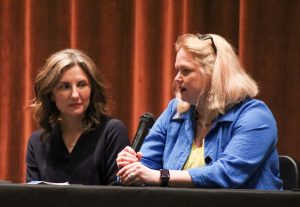
“When the war began, I didn’t think Russia would bomb its most beautiful medieval churches and monasteries, because they’re also part of Russian heritage,” Lodge said. “However, after Russia bombed the theater in Mariupol, and other places like schools and hospitals, I started getting a little more worried.”
While Lodge focused on the cultural dimension of the Ukrainian conflict, Michael Mills, director of global education, stressed the importance of preparing for the global economy the world is progressing toward and how Lodge’s experiences wouldn’t have been possible without international travel.
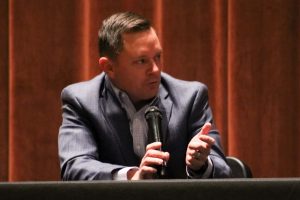
“You all came here tonight to hear from subject matter experts that study this material, they know this material, but most importantly they travel and they’ve experienced these places that they’re talking to you about,” Mills said. “I know it’s very difficult to see what’s on the news, and it’s very difficult for us to comprehend what’s happening, but we’re lucky to have subject matter experts that have not only studied this, but they’ve been there, they’ve experienced it, they’ve talked with locals… and been an important part of that human diplomacy.”
Rebekah Dowd, assistant professor of political science, expanded on the concept of the thriving global community by discussing how sanctions have crippled Russia’s economy due to how the interconnected nature of the world makes war a very costly thing, a mechanism of diplomacy first envisioned back in World War II, with the formation of the European Union.
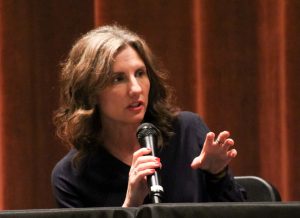
“The EU was formed basically in 1952 with this agreement to form a union of states that were interested in coal and steel interchange,” Dowd said. “We had two major wars, back to back… and so if we bind these states in economic activity that hopefully these business interactions will make doing war so costly that they won’t go to war again.”
As Dowd elaborated on in her discussion, Ukraine didn’t join the EU, nor did it join NATO, the security alliance, and Ukraine relinquished its nuclear weapons to Russia in 1996, losing its nuclear deterrence option. With this, Ukraine was either left to protect itself, ally with Russia or ally with the EU to defend itself militarily.
“In terms of internal politics in Ukraine… politics was not always smooth, accountable, and fair,” Dowd said. “So, the leader of the country, [President] Yushchenko, says I’m going to calm things down. I’m going to promise that we’re going to be more accountable. We’re going to try to get rid of corruption, and we’re going to deepen our ties with the European Union.”
Dowd explained that the European Union helped Ukraine with its road to becoming a member of the EU pact, but the Union’s efforts were ultimately ineffective and simply for show, which hurt Ukraine’s relationship with European allies.
“[The EU supporting Ukraine] sounds good on paper and in big press statement, but in reality, it didn’t come to fruition in a full way,” Dowd said. “So, you have this degradation of a relationship, lot of promises but not a lot of fulfillment happening increasing the ties with the EU.”
Power has changed hands multiple times between pro-EU Ukrainian presidents and pro-Russia Ukrainian presidents, resulting in civilian protests and a Russia-sympathetic president, Viktor Yanukovych, resigning from office, creating a weakened country for Russia to take advantage of.
“Yanukovych says ‘I’m going to step down. We’re going to create an interim government. We’re going to have new elections,’” Dowd said. “But what this does is, this creates such internal instability in Ukraine that it opens the door for Russia to step in, and that is when Russia invades the south part of Ukraine, Crimea, and takes it completely, within days, and then begins to go into the eastern half of Ukraine and begin to wage civil war and support those rebels on that side of the country that want to join Ukraine to Russia.”
In response, the EU kept with trade agreements and distanced itself from the possibility of making Ukraine a member of its alliance.
“In terms of economic cost to the EU, Russia is supplier of 2/5 of the natural gas going into Europe to heat their homes… and over ¼ of Europe’s crude oil comes from Russia,” Dowd said. “So, that means to the EU, you think our gas prices have gone up, not compared to those in the EU. They are spiking.”
These spikes are a result of the West’s sanctions on Russia, but Mike Rattanasengchanh, assistant professor of history, cautioned a complicated relationship between sanctions and their effect on Russia, as he explained Russia’s relation to other authoritarian powers like China.
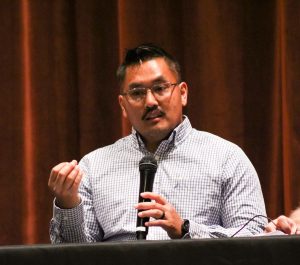
“So, the question is, ‘are sanctions working’. A lot of US analysts are saying yes and no, and again, that’s not an answer that political leaders like,” Rattanasengchanh said. “As Rebecca said, Russia is definitely suffering, but China has been creating a system of its own to compete with the capitalist system. And in many ways, it’s actually, there are some flaws with it, but it’s actually doing very well.”
John Ashbrook, chair of the history department, whose studies focus on military history, Eastern Europe and identity politics, elaborated on the reasons Putin might be committing to this action at this time.
“One of those things [that precipitated the invasion] is Putin is still looking at the United States as the main enemy of Russia and what happened in Afghanistan,” Ashbrook said. “[Afganistan] was a big, black eye for American foreign policy. It was a disaster if you’re looking at it just from a military perspective. I’m not getting into the moral aspects, but just looking at it militarily, it illustrated a major weakness of the superpower that’s against Russia at this time.”
After describing the military operations and strategies which animate Putin’s decisions, Ashbrook described the goals Putin has for the invasion. Even if peace is reached between Russia and Ukraine, Ashbrook cautions onlookers to look at what territory Ukraine gives up in whatever possible peace may be reached, as there may be a defeat within the jaws of compromise.
“The first of [Putin’s] goals is that he wants to guarantee that Ukraine will never become a member of NATO or the EU,” Ashbrook said. “…We have breakaway region [within Ukraine]… and it cuts off 60-to-70% of Ukraine’s ports. This would weaken Ukraine and make it more dependent on Russia.”
As the situation in Ukraine develops, MSU faculty in political science, history and international education have voiced their expertise and perspectives on the various economic and political forces animating the Ukraine-Russia war, cautioning listeners to be skeptical of the bite-sized versions of reality we see of Putin on “late-night television,” as Ashbrook cautions, and encouraging us to understand that with most issues the answer is, as Rattanasengchanh says, “it’s complicated.”
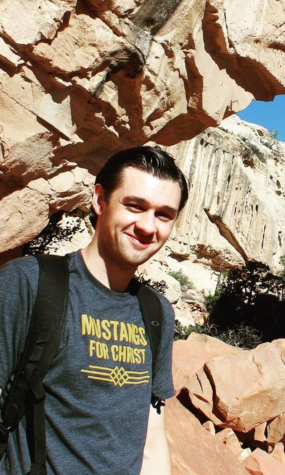
Hey everyone! My name is Joseph Nelson, and I am an English major graduating in 2022. I joined The Wichitan in the Fall of 2020, and I've really enjoyed...



